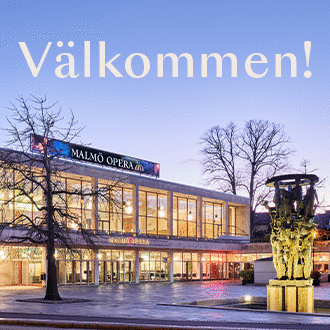What you are studying greatly influences your possibility to get a masters degree.
Students at the Faculty of Science have all of 18 master programs to choose from while students at LTH only have six. This is in spite of the fact that the students at LTH are almost four times as many as the students at the Faculty of Science.
This autumn the university launches about 60 masters programmes, but the numbers differ greatly between the faculties.
Even though the Faculty of Science, with its 1 500 students, is one of the smallest faculties, it still has more masters programmes than any other faculty. Pro vice dean Olle Söderman explains:
– We have a number of main areas, for example biology and chemistry, and each of these areas is going to have a masters programme. And because we don’t want to limit our students every programme can also take different directions, he says.
Programmes without applicants
According to Olle Söderman many of the programmes in the application catalogue are sub choices from the same programme, and that is why there seems to be more programmes than there really are.
But this abundance of masters programmes seems to be creating problems: the faculty has not yet succeeded in filling the places and some programmes have no applicants at all. According to Olle Söderman they are still trying things out at present and no one knows what the results are going to be like.
– At present it is also difficult to have an idea about the application numbers. I still think it is going pretty well, for example it is looking up for the environmental programmes, he says.
Popular at EC
The masters programmes at Lund University School of Economics and Management are doing better. 13 new programmes are starting this autumn and for most of them applications have poured in. The most popular programme is ”International Marketing and Brand Management”.
– We have made our research areas and what we think might be interesting to the students our starting points. The programmes should prepare students for working life and they should have a strong research connection, says Matts Kärreman, Dean at the Department of Business Administration.
LTH have 5 500 students, but will only offer six masters programmes this autumn. The reason is that the faculty mainly deals with vocational education.
– We mainly educate architects, business administrators and engineers. Students choosing a masters programme will take already existing courses together with the vocational education students say vice principal Per Warfvinge.
The same goes for the Faculty of Medicine and the Faculty of Law.
– Vocational education is more closely governed, and that is probably part of the explanation, says Göran Thomé, Director of Education at the Faculty of Medicine.
However, the faculty wanted to launch two more masters programmes in logopedics and audiology, but lacked the funds.
Students at the Faculty of Law have since before been able to get a masters degree by taking courses that are part of the English spoken programmes and then supplement with other courses. Also, the Faculty of Law is now launching a new masters programme in ”maritime law”.
Bought from outside at Campus
At Campus Helsingborg the situation is different. Several of the programmes, for example within the field of marine biology, are bought from outside which means that Campus has no influence on them. In other areas where Campus has the deciding vote, the range of programmes has been looked through and ideas for masters programmes have been developed.
– Ideas were hammered out in working groups before we arrived at the decision to launch three programmes this autumn, says Principal Anders Hallgren.
And he is proud of the masters programmes that are offered at Campus Helsingborg.
– The masters programme in ”strategic communication” has the third highest application number of the new programmes, he says.
At the Faculty of Social Sciences there are six different masters programmes, but students that want a master of social sciences also have nine different sub choices to choose from, which makes it possible to get a subject based masters degree.
– Former exchange students have felt as if they reached a strange kind of midlevel when they got their “magister”. The new programmes will be something that is recognised outside Sweden as well, believes Director of Studies Paula Uddman.
Photography: Elias Björn
Translation: Lin M. Grimhammar









